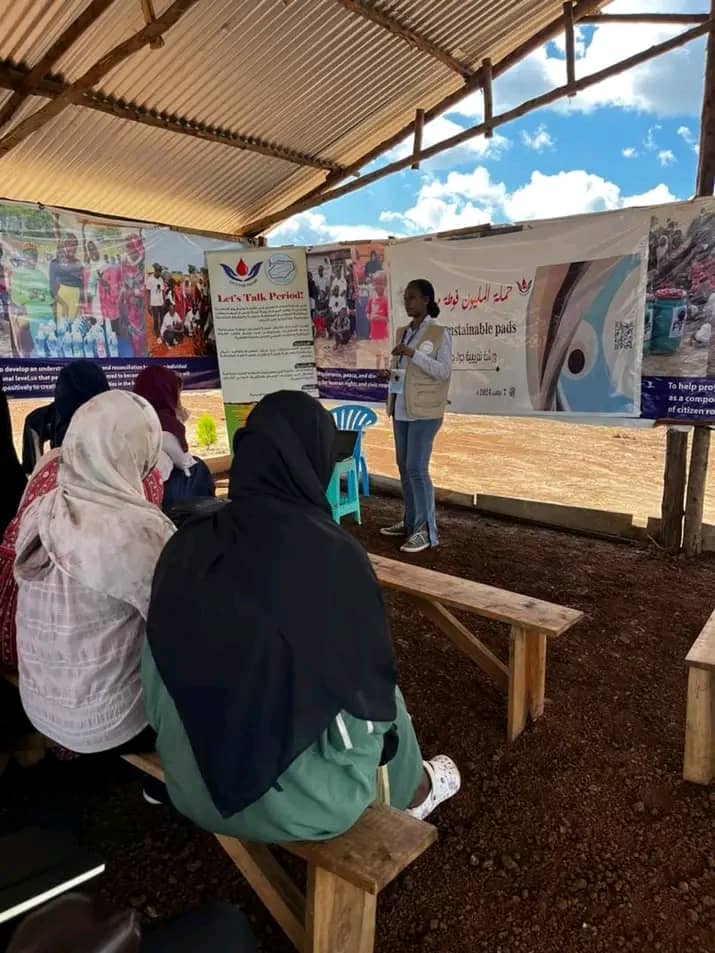Trapped between war and womanhood: Sudanese women face a sanitary crisis
26 August 2025
When Fatima Ahmed* fled her home and arrived at a displacement camp in Sudan, she had no idea that her biggest struggle wouldn’t just be escaping bombs — but managing her period.
“I got a serious vaginal infection that turned into endometritis,” she says. “The camp was unhygienic; the toilets were shared between men and women and full of flies and mosquitoes. We had no clean water or soap.” Fatima, along with her four sisters, had to share three packs of sanitary pads each month. “That meant each of us only got four pads. “The rest of the days, we had to use rags torn from old clothes,” she recalls. “But we couldn’t even wash and reuse them properly. There was no water.”
Fatima isn’t alone. Many young women and girls in Sudan’s displacement camps and war-torn regions are dealing with painful infections, irregular cycles, and emotional distress—all because of one overlooked crisis: the lack of menstrual hygiene products.
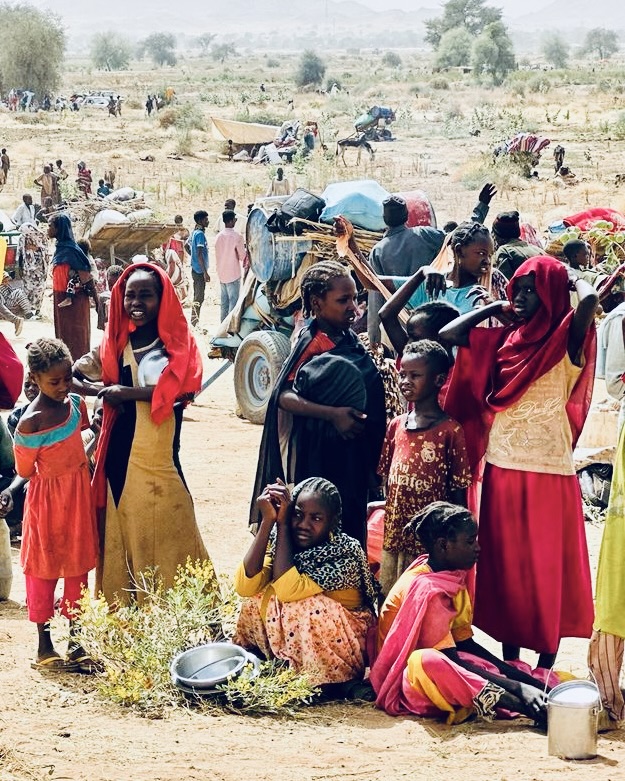
The war that broke out in Sudan on April 15 has forced thousands of women to flee their homes. But as bullets fly and bombs fall, something more intimate is being lost — dignity.
“Since the war started, many women report that their periods have become irregular,” says Fatima. “Some say they got their period right after hearing the first gunshots, even though it wasn’t due yet.” Fear, trauma, and displacement have caused hormonal imbalances for many. Pregnant women, too, have suffered. “I remember a woman who miscarried from the shock of heavy shelling before she could even reach the camp,” she adds.
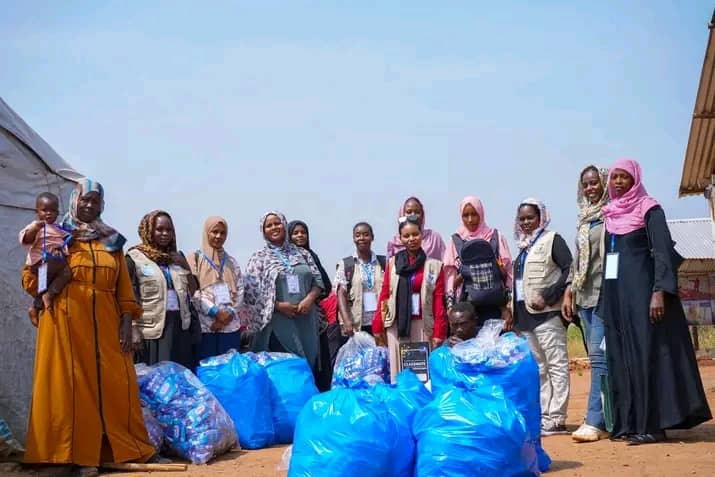
No pads
In refugee camps like Gorom in South Sudan, the situation is even more dire. Samia Al Tom*, who was pregnant during her displacement, shares her experience: “There were no health services. No one distributed pads. We had to use pieces of cloth instead,” says Samia al-Tom*, who was pregnant while displaced in Gorom. Medical checkups were unavailable. Pregnant women had no access to prenatal care. “Everything was expensive. And there was no support.”
Even where pads were available, prices skyrocketed. In places like Kadugli, a single pad now sells for 3,000 Sudanese pounds (roughly $1.50)—rather than a whole pack. In other cities, a pack ranges from 4,000 to 5,000 Sudanese pounds. Most families simply can’t afford it.
Without access to proper menstrual products, many girls are using bedsheets, torn clothes, or any scrap fabric they can find. Even fabric is becoming scarce, says Dr Marwa Taj el-Deen, a medical doctor and public health expert. “Some areas have completely run out of fabric because women are cutting up anything they can to manage their periods.” These scraps of cloth can cause serious health issues, Dr Marwa says, including chronic infections and reproductive complications.
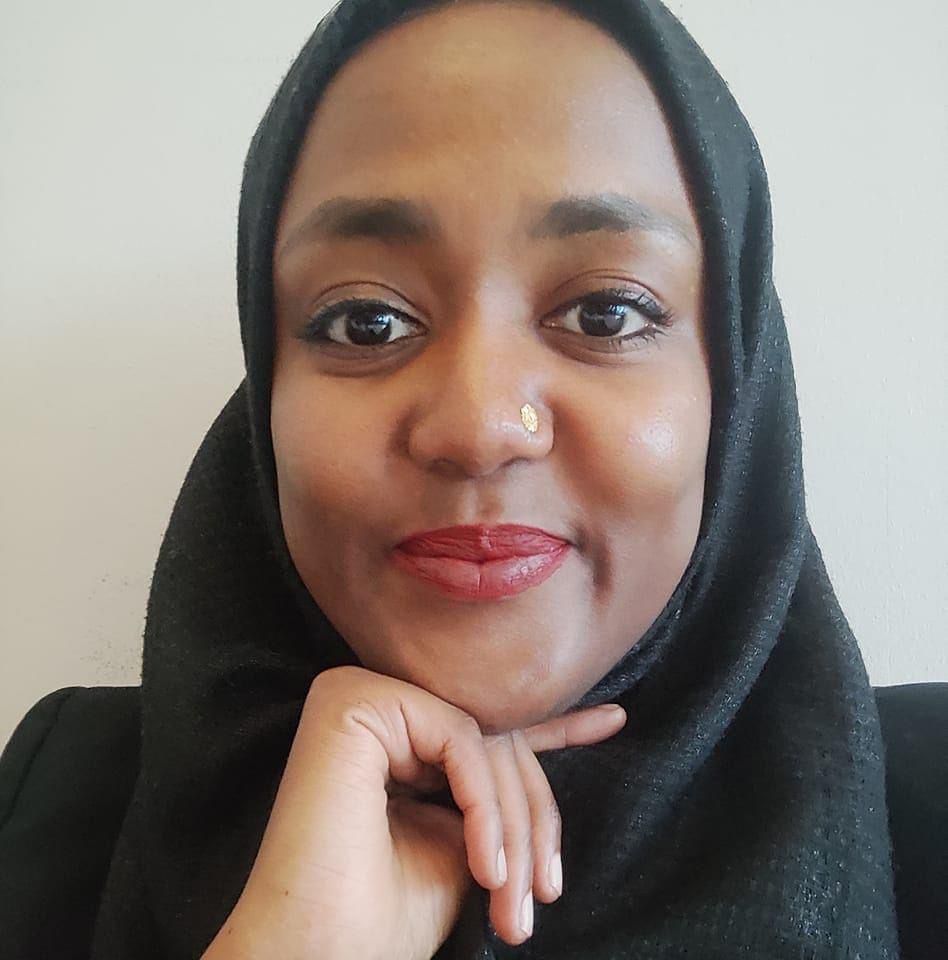
War and menstruation
“The war affects menstruation on multiple levels,” Dr Marwa explains. “Not just the physical lack of pads — but the psychological stress.” Many girls now avoid going to the toilet because the facilities are unsafe or shared with men. “They wear the same pad for too long or use poor-quality ones. They isolate themselves during their periods out of shame or fear of leaks,” she adds.
Some experience heavier bleeding, frequent cycles, or completely missed periods — all triggered by trauma and poor conditions. “Even girls with polycystic ovarian syndrome (PCOS) have no access to treatment anymore,” she says. “Hospitals have been destroyed, and medical teams are targeted.”

Fedaa Ashraf Mohammed, a reproductive health activist, says there are no accurate statistics regarding access to pads in Sudan. “But we know (the lack of access) is a huge number. Whether in conflict zones or refugee camps — the struggle is the same. No soap. No clean toilets. No privacy.”
Mohasin Ahmed fled the conflict in Khartoum with her child, ended up displaced in Gedaref, and remains acutely aware of the struggles faced by herself and other displaced women. “It was rainy season. The camp was full of flies. The toilets were filthy. I had my period, and I was sick. My baby had diarrhoea from the poor conditions,” she recalls. “Pads were expensive. Diapers too. I couldn’t afford anything. The pain, the stress — it was unbearable.”
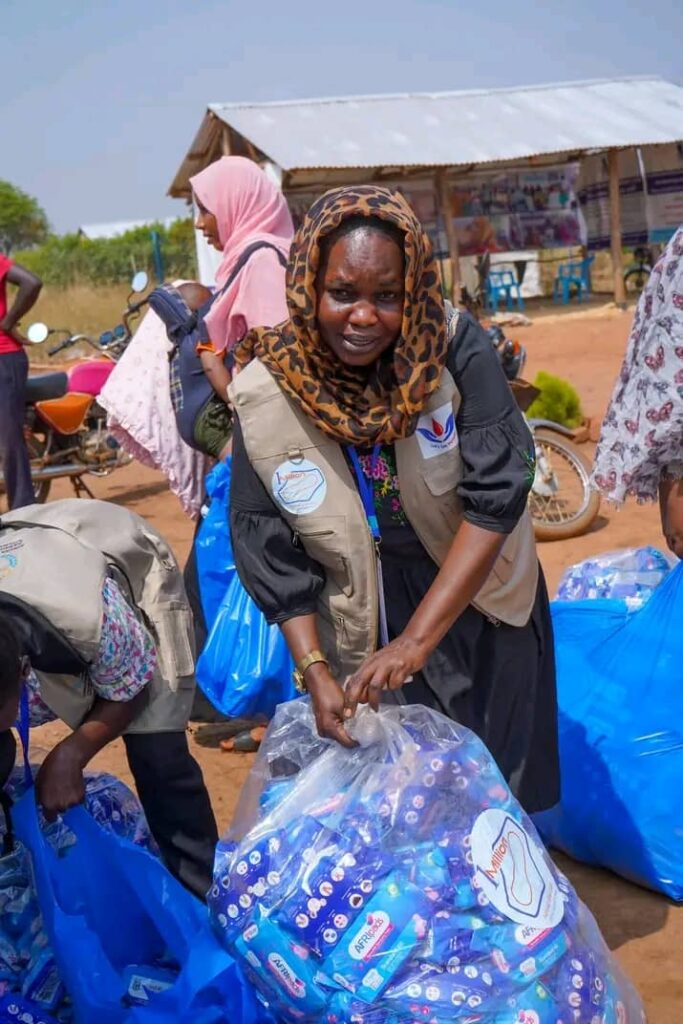
Grassroots response: a campaign for dignity
In the face of government collapse and international silence, some grassroots movements are stepping in. Dr Marwa helped launch the “Million Sustainable Pads” initiative in June 2020. By late 2023, the campaign had joined forces with the Red Card Organisation and began distributing reusable cloth pads. “We work with a factory called Al Salam that produces high-quality, washable pads. We also provide education on menstrual health, contraception, and gender-based violence,” says Dr Marwa. “In areas we can’t reach physically, we send donations so local women can buy pads from pharmacies.”
So far, the campaign has distributed pads in Kassala, Dongola, Halfa, Merowe, Nyala, Gedaref, and even refugee camps in Uganda.
What’s happening in Sudan is more than a humanitarian crisis. It’s a crisis of dignity, health, and womanhood, Dr Mawa says. While the world watches the conflict unfold, the daily pain of Sudanese women remains invisible.
*Name changed upon request of the source.


